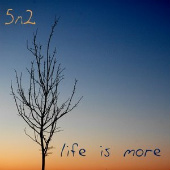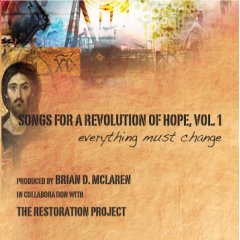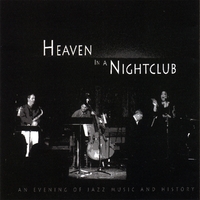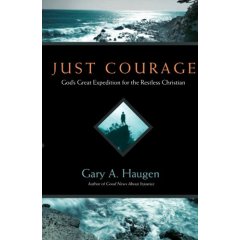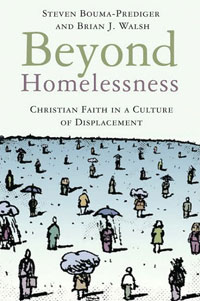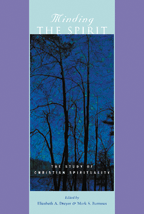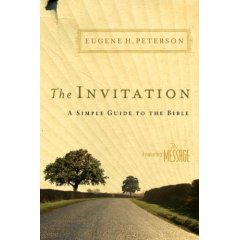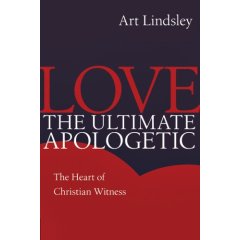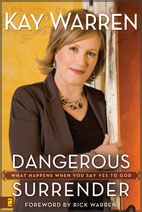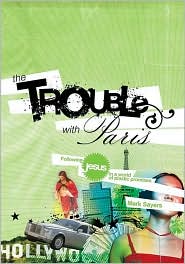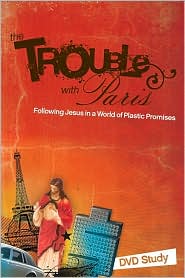In our over 25 years of bookselling, a few authors stand out for their passion, their large interest in their work and their enthusiastic support for our feeble efforts to sell a few of their titles; titles they usually believed—without pride or presumption—might make a difference in the world. We’ve looked to them as models of a thoughtful and serious presence within the publishing world and promoting their work helped define our calling here. Some have sheer enthusiasm, a sharp mind, or a colorful personality and we are energized by listening to them (think Tony Campolo, or, differently, Marva Dawn or Lauren Winner.) Others are weighty and understated, but the substance and caliber of their work attracts serious listeners and readers (think, for instance, Eugene Peterson, Os Guinness, or Ron Sider.) In their own ways, these sorts of authors are most memorable for their ongoing pubic witness through their excellent books, their important and gifted writing and the vital content of their ministries. We have been grateful for their friendship to us here at Hearts & Minds.
And there is Tom Sine. Sine speaks faster and with as much gusto as Campolo, yet
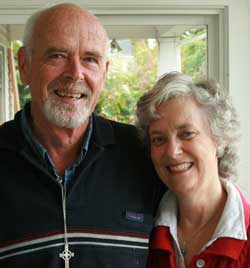 shares the earthy spirituality of Eugene Peterson; he is fluent and thoughtful about global trends and international affairs and also in the daily, local details of what he calls “whole-life discipleship.” And he phones us some days just to encourage us out here in small town central PA. You see, he believes in the extravagant sowing of seeds and the world-changing power of mustard seeds.
shares the earthy spirituality of Eugene Peterson; he is fluent and thoughtful about global trends and international affairs and also in the daily, local details of what he calls “whole-life discipleship.” And he phones us some days just to encourage us out here in small town central PA. You see, he believes in the extravagant sowing of seeds and the world-changing power of mustard seeds.
In the mid to late 1970s, as a young evangelical with very public interests, I was hungry for good books and like-minded allies. In 1980, I believe, I realized (with great delight) that Tom Sine’s groundbreaking The Mustard Seed Conspiracy was, well, groundbreaking. While some friends and I were studying the history of ideas and the deformation of culture from the impact of idolatrous ideologies and worldviews (reading the likes of Francis Schaeffer, Herman Dooyeweerd, Nicholas Woltersdorf, or Bob Goudzeward) others joined together as we signed up to protest the not so cold war militarism of the arms race. Influenced by Sojourners and The Other Side and Jim Wallis’ early books, which drew on leaders such as John Howard Yoder, William Stringfellow, Dorothy Day, James Cone, and Dan Berrigan, we forged communities of action and creative resistance. Most evangelicals, nor many mainline folks, in those years didn’t care much about the world at all, though, and both the cultural worldview reformers and the political/social activists impressed me with their desire to live out the faith in relevant, transformational ways. The Mustard Seed Conspiracy seemed in ways to combine various diverse streams, and Sine’s watershed book seemed to have a serious understanding of the broadest social and ideological trends yet invited radical action. I am only one of many who found that book extraordinary. Beth heard him at the Jubilee conference in Pittsburgh in those years, and was very impressed, quoting Calvin and Ellul.
Among the many authors Sine cited (and he always cites a lot) were leaders who became my own heroes and mentors, James Skillen, Ron Sider, John Perkins. MSC raised a prophetic cry from the evangelical center. Sine believed that ordinary church folk could make a difference, not just the heavy cultural critics or the exceptionally dedicated resistance protestors. And he was right.
Years later, as movements and traditions solidified and authors became better known, Tom kept at it, mixing the groups, networking younger voices, doing a string of inspiring, upbeat, invigorating books, drawing always on this wide array of sources, pushing this unique blend of social critique, deep spirituality, radical social action. From the excellent, brief, introductory study Taking Discipleship Seriously: A Radical Approach (still a must-read and highly recommended) to the critique of the American Dream in Live It Up, from the fairly academic Cease-fire: Searching for Sanity in America’s Culture Wars to the fabulous Finding Your Purpose (better than Purpose Driven Life, as I said in these pages years ago) his books have been consistently interesting and helpful. Ravi Zacharias famously named Mustard Seed vs McWorld as one of the most important books he’d ever read. Tom Sine has been an important conference speaker, organizer, consultant and workshop facilitator over the last 25 years, even as he has been based in intentional community, and—importantly, given his calling—in serious relationship with folk from all over the world, especially, it seems, in the U.K. and Down Under. I think it is fair to say that he stays put and is widely traveled, knows the ordinariness of a real place and yet sees the biggest of pictures.
Sine has been palpably hopeful (his book Wild Hope is sadly out of print) and exceedingly creative, alongside his wife Christine, herself a former Mercy Ship doctor, and author (most recently of Godspace which is a lovely and helpful book on rest, and life’s rhythms.) When they offer lectures or seminars they might tell stories from Africa, or insist on a closing celebratory feast. They might have you up and dancing or sitting in prayerful silence or reciting a Celtic blessing. (They might even have you doing all of those things, just in the first half a day!) They believe in the sanctified imagination, in a pedagogy that is communal, joyful, and active, and they believe that learning can be transformational. As I said, there are certain authors who deeply believe in the power of their books, not due to pride or presumption, but because they believe that God uses ordinary folk like themselves to make an impact. Why else would an author work hard to write a book if they didn’t significantly hope that it will find an audience who will be transformed by it? Sadly, though, many of the Sines’ books have been under-the-radar, I’m afraid, not selling as well as they should; yet they’ve changed lives. They are considered by important thinkers to be pivotal. I’m not sure if Sine coined the phrasing “missional” but he has been a part of that conversation, that movement, inviting folks to joyous lives of simple living and radical service for the Kingdom of God, the shalom of the planet. Almost all of his books have been critically acclaimed, and we have several of them still on our shelves here. We are grateful for the chance to have these kinds of resources to recommend and are honored to call him a friend and H&M supporter.
Tom Sine’s persona, his presentations, and his books are infectious; as much as any author I know, Tom backs up his writing with a wild life of faith-filled hope, experimenting (to borrow Ghandi’s phrase) with truth. He and his comrades in the mustard seed conspiracy breath together (that is the meaning of the word) to cook up (sometimes literally) a new world. From multi-ethnic meals to multi-denominational worship experiences, he nurtures community, facilitates networks, evokes Godly imagination and insists with every fiber of his being that God’s intentions for His planet is seen in the redemptive restoration of Jesus the Servant King.
So, Tom the statistician and futurist, Tom the Celtic mystic and worship poet, Tom the world missions guru and global storyteller, has left a mark. The Mustard Seed Conspiracy<
/b> (now oddly out of print) has been considered one of the most influential Christian books of the 20th century. Ask the best leaders and they all will cite him as influential in their journey.
And so it has come to pas that InterVarsity Press realized that that classic book might be re-issued in some anniversary, updated manner. Could the ever-energetic, overly optimistic, exceptionally visionary Tom Sine settle for an update of that old chestnut? He’s a futurist, recall, and is convinced that peopled are called to “read the signs of the times.” He is, somewhat like Leonard Sweet, a semiotician. He knows how the times have changed! Of course, nothing but a whole new book would do. Viola: The New Conspirators: Creating the Future One Mustard Seed at a Time is the new result, and it is not a spiffed up version of MSC2 but a whole new book! Can you hear the echo of the original mustard seed conspiracy? This is the new conspiracy, or at least new forms of the old one.
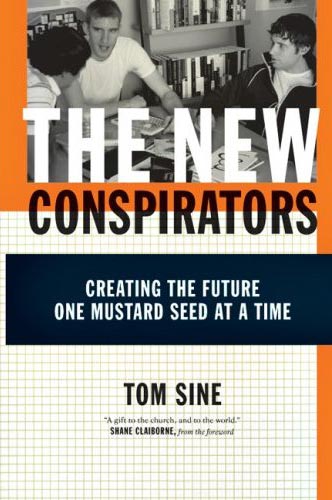 The New Conspirators: Creating the Future One Mustard Seed at a Time (IVP: $15) is an obvious hat tip to the vision and hopes and style of MSC. As did the original, this includes stories of ordinary folk, it includes incisive political and demographic analysis, cultural criticism, missional theology. And did I mention there are stories? Energetic stories, well told illustrations, plenty of examples and case studies? I know a few preachers who have gotten this just for the sermon illustrations (true sermon illustrations) about those who heard the call to live out wholistic faith, to be a fool for Christ, who responded to grace in creative initiatives of servanthood and mission. The New Conspirators is packed full of glad news, of those who find life in giving their lives away for God’s sake and their neighbors good.
The New Conspirators: Creating the Future One Mustard Seed at a Time (IVP: $15) is an obvious hat tip to the vision and hopes and style of MSC. As did the original, this includes stories of ordinary folk, it includes incisive political and demographic analysis, cultural criticism, missional theology. And did I mention there are stories? Energetic stories, well told illustrations, plenty of examples and case studies? I know a few preachers who have gotten this just for the sermon illustrations (true sermon illustrations) about those who heard the call to live out wholistic faith, to be a fool for Christ, who responded to grace in creative initiatives of servanthood and mission. The New Conspirators is packed full of glad news, of those who find life in giving their lives away for God’s sake and their neighbors good.
As the sociologist and “big picture” scholar that he is, Mr. Sine is not content to just call us to service, to tell the tales of God’s new faithful. (That would be plenty, frankly, but NC is much more than a radical version of Chicken Soup for the Soul.) He has his finger on the pulse of the latest trends, even those that tend to be under the radar, and explores plenty of fascinating aspects of the 21st century mood, values and concerns. As one reviewer puts it, he is “a master of connecting the dots.” Here, he is particularly passionate about exploring groups who are thinking in fresh ways, understanding faith and discipleship in peculiar ways, movements that are fast becoming trends themselves–and connecting those dots. He explores four of what could become, especially in the aggregate, the most significant movements from the margins to impact the church and consequently the church in our time. Although we are “traveling in turbulent times” he remains inspired. He also insightfully tells us of several important conversations that are happening the world over, among these four movements, conversations that run throughout the book. He introduces plenty of new content, and reminds us of plenty of stuff we thought we knew, gaining perhaps a new angle of vision. He underscores certain concerns and explains complicated matters in clear prose. It is a marvelously rich book, potent and packed. As one customer quipped, “you sure get your money’s worth when you buy this one!”
Not only do you get your “money’s worth” with the vast and informative content and fun stories, but I believe Sine speaks with authority here, authority earned from the decades of traveling, listening, thinking and working on this stuff. Listen as Shane Claiborne nicely comments in the foreword, words that are very nice, but, more importantly, are very insightful and important:
Tom has not just tried to understand this generation like many of his peers, but Tom has tried to stand under it. He has been a learner and listener to a generation set on making its own mistakes and dreaming its own dreams for the church. He is a humble sower of mustard seeds, not the one who scrambles to devour the bountiful harvest.
This book runs the risk of making a few of us young tykes look too good, but that in itself is evidence of Tom’s humility. His motivation for writing is to see a church that is one as God is one, a people that mirror the peculiar and countercultural politics of God’s kingdom, a body that looks more like Jesus than the ole time religion of the past. It is that old, stale Christianity that threatens to inoculate us from the real thing. And it is books like this one that revive our imaginations to the things that are turning God on in the world.
Tom jokes in the book about getting lost easily when he travels, claiming “the gift of disorientation.” So he goes out of his way to make the myriad of voices and themes in The New Conspirators understandable and clearly presented. He lists five conversations that are occurring, and need to be occurring, in our home settings. And he describes, in what is the heart of the book, four groups of “new conspirators” who are, in their unique way, bringing a fresh and vital contribution to the work of advancing God’s reign.
The conversations–“stops along our journey together” as he puts it—explore the following topics as we are invited to join God’s quiet conspiracy. (Yes, Sine is delightfully and quite intentionally relentless in his writing style, inviting us, the readers, to be a part of this conversation.) He calls this overview a “global positioning tour” and it is the structure of the book:
1. Taking the new conspirators seriously.
2. Taking the culture seriously.
3. Taking the future of God seriously.
4. Taking the turbulent times seriously.
5. Taking our imaginations seriously.
“This book,” he writes, “is an invitation to be much more a part of something really, really small that is quietly changing our world. But it is also an invitation to revisit our images and understandings of the story to which we have given our lives.”
Sine says that he finds that “many older evangelical Christians assume that all the important questions were answered decades ago and that we got all the answers right; now all we need to do is simply improve our tactics and strategies. But as I look at the contemporary expressions of Christian life, church and mission, I am not convinced that we have gotten all the answers right. I am going to echo some of the tough questions I hear being raised by younger leaders on the conspiratorial edge. I am going to invite us to the challenging task of revisiting five important questions.” He lists them like this:
1. Did we get our eschatology wrong?
2. Did we get what it means to be a disciple wrong?
3. Did we get what it means to be a steward wrong?
4. Did we get what it means to be the church wrong?
5. Did we get what it means to do mission wrong?
And, to be honest, he is just getting warmed up… Of course, many younger Christian readers may not even quite realize how significant these conversations, and these questions are. They seem so right to be asked; Sine is correct, though—many are reluctant to even have these kinds of conversations, to ask these kinds of questions. We are glad to have a book like this to use and strongly commend it to you and your group; it is urgent to be attentive t
o God’s Spirit as we discern together the most faithful ways to live into this stuff. He is tentative and humble when he needs to be, and provoking and energetic almost always. His middle section about God’s intentions to heal the planet, consistent with, say, N.T. Wright’s well known work on new creation, is fabulous and could generate great conversations and greater Biblical faithfulness.
And, he really does look for global conversation and mutual edification. Their Mustard Seed Associates has created a study guide for the book (beyond the already plentiful conversation starters and discussion resources in the text itself.) Visit www.thenewconspirators.com or email the author at mail@msainfo.org. They even give you their phone number in the book if you want to call them! They’ve created a free e-zine, too, sharing stories from around the world. Sign up for The Seed Sample for a regular story in your inbox.. Conspiratorial, eh?
But, how about the four movements? What or who are they?
Throughout his travels, Tom has networked and researched and fellowshipped with (at least) four distinct (if overlapping) movements. These trends, streams that are impacting how church and ministry is being considered, influencing major publishing houses, setting the agenda at conferences and confabs the world over, shaping our vocabularies and imaginative horizons, are described with particular clarity in the first conversation (“taking the new conspirators seriously.”)
1. The Emergents. Obviously, these are (in my words) those lead by the emergent village, but including many more, the postmodern hipsters who are hosting their own global conversations and local cohorts rethinking everything in light of their rejection of modernist agendas and evangelical platitudes. I’ve written about these folk before and trust you agree that this is a major movement, for better or worse. Recent reviews have suggest that Sine is one of the best reporters of the emergent-type movements, and The New Conspirators is taking its place beside such standard overviews as Ryan Bolger’s classic The Emergent Churches or the recent Tony Jones, The New Christians.
2. The Missionals. It may have been Princeton’s Darrel Gruder who coined the phrase, but this catchphrase implies more than being interested in world missionary work. This is a “new” mindset where churches are communities, even countercultural ones, that exist for others. They are not about themselves, but are about the purposes of God in the world. Influenced by the likes of Leslie Newbegin and popular in the mainline churches, especially, being missional may be the most significant buzzword of the new century. Sine names the “Gospel and our Culture Network” as an important standard-bearer in this post-Christendom move, and we couldn’t agree more. Missio Dei is “Thy Kingdom Come.” And that always takes embodied shape within real cultures, but must not be absorbed by them. Complicated? Stay with Sine a bit and it will be your burning passion.
3. The Mosaics. Tom uses this nice M word perhaps inspired by the creative efforts by Irwin Raphael McManus and his Mosaic congregation in LA to be truly multi-ethnic and cross cultural. Resisting racial injustice and celebrating multi-ethnic reconciliation is part of this, but a true celebration of the normative nature of ethnic diversity for the church is the positive goal. There are wonderful strides being made here, perhaps less in mainline denominational churches, despite their well-intentioned rhetoric. Many of the most vibrant church plants in most major cities are ethnic congregations and multi-racial ministries are much more prevalent in the US than ever before. Good for Tom for sensing the importance of this stream; there is little use denying this (read Jenkins for the global picture) and every good reason, Biblically and theologically, for working hard to overcome the church’s tendencies towards unfaithful homogeneity.
4. The Monastics. While truly cloistered folk may not be the model, here, the monastic movement has taught us much, and the likes of Richard Foster, Henri Nouwan, Thomas Merton and such have swept the broader church, helping many grow more intentionally about spiritual practices, contemplative disciplines, and spirituality that is forms character and sustains a life of Christlikeness and fidelity. Interestingly, Sine sees the “new monasticism” as being especially involved in the classic monastic outreach to the poor. Citing the likes of legendary third world urban worker Viv Grigg and Camden NJ activist Shane Claiborne, Scott Bessenecker, who wrote The New Friars: The Emerging Movement Serving the World’s Poor, and John Hayes (of the urban SubMerge movement) Sine documents this amazing move of younger evangelicals embracing God” demand for social justice and solidarity with the poorest of the poor. Again, although mainline churches seem socially progressive and ecumenical seminaries teach liberation theology, it is clearly younger evangelicals that are flooding the two-thirds world with creative initiatives, wholistic ministries, and writing the most compelling books about God’s deep passion for the relief of oppression and our compassion for the poor.
Not unrelated, too, is Tom’s amazing fluency in the global scene, his very helpful suggestions for taking the needs of the poor seriously (as well the needs of the middle classes, and the wealthy in the global economy.) Can we “make poverty history?” Can ordinary Christian folk get involved in the debates about globalization? Further, he dips just a bit into the work of Lamin Sanneh and Philip Jenkins and others who report on the increasingly global and non-Western make-up of the worldwide body of Christ. I know Tom knows these guys, and his heart pounds for a global vision. This is really, really great stuff, fascinating, urgent, and very accessible for those who tend not to read such sophisticated work or current affairs. Oh, the seeds he is sowing, and the good work that can come out of those who read this material. What might happen if a group here or there, your group, perhaps, takes something of this to heart, and makes room in their lives for more intentional faithfulness as culturally awake, global citizens?
I hope that–and I dream what could happen as—many read this book, and that churches, Bible study groups, small faith communities, and adult ed classes use it. It is well worth reading, a great overview of the issues of our time, and offers a very nice balance between detail and new information and illustrative stories and inspiring rhetoric. The flow and cadence is right—I know he worked very hard to make this jam-packed and user-friendly.
There are criticisms that can be made as there are with any book. My own personal peeve is that he doesn’t describe the perhaps even lesser known movement, but very important, uprising of younger neo-Calvinists, those citing Kuyper and inviting conversations about “thinking Christianly” about every area of life. Friends doing great work on culture, local economies, sustainable and faithful daily lifestyle stuff over at catapult and their *cino network, working at work-world reformation and new urbanism at comment and the important Jubilee conference inviting college students to think about their vocations all come to mind; broader events like the Q (sponsored by the extraordinary cultural creatives at The Fermi Project or New York’s stunning International Arts Movement (IAM). The Christian Vision project of Christianity Today’s Christian Vision Project (counter-cultural practices for the common good) have been a fresh way for evangelicals and others to engage culture, and Andy Crouch’s DVD “Where Faith & Culture Meet” is a great collection of mustard-seed type innovations. Andy Crouch’s own culture making site is generating conversations that help folks reflect on getting beyond cultural consumption or critique towards contribution. All of these in one way or another informed by the neo-Calvinistic Kuyperian worldview and are sowing true mustard seeds that may blossom into sweet gifts for the common good.
Tom is well acquainted with the increasingly progressive stream within the (post?) evangelical world and his sympathies are clearly with our emergent friends. A few of the chapters in his book are actually a tremendous intro to that movement. Still, I wonder how much more helpful it may be to offer some critique or concern about the foibles of that movement? Certainly there are those who don’t think that movement will offer much of substance for the long haul… And does the shift from “post-modern to post-colonial” that Brian McLaren so powerfully discusses in The Emerging Manifesto of Hope indicate a trend? It is one that Tom is perfectly positioned to not only document but to guide.
Lastly, I might have wished for more direct discussion of the fate of the mainline churches. Are they sidelined? Are they still viable? Can our historic liberal denominations live into the new practices that they are themselves writing about, being shaped by deeper worship, teaching contemplative, going missional, and more faithfully guided by their best doctrinal traditions? The New Conspirators is not at all irrelevant to mainline churches, even if many of the stories are not of your typical Lutheran or Presbyterian or Methodist parishes. Many of his illustrations are, in fact, from mainline settings (including his good knowledge of Anglican ministry in the U. K.) if admittedly from some of the more innovative and experimental congregations. Again, this is a part of his own heart, and he and Christine speak often for traditional mainline denominations, so I would have wished for just a small bit more about that as a context for forming new conspirators and how that might be encouraged.
These are just minor quibbles though, and I invite you to consider getting this, for all of the good reasons named above. The New Conspirators: Creating the Future One Mustard Seed at a Time is perhaps Tom Sine’s crowning work, or, as Alan Hirsch puts it, “vintage Tom Sine.” He does his social analysis, does social visionary thing, he tells tons of inspiring stories, he documents new trends and invites us to be aware of the (perhaps) strategic influences of several new streams within the broader Body of Christ, even as we live out the implications of these in fresh ways contextualized to the contemporary world and its ways and needs. He has tons of interesting foonotes and a great sample of on-line resources. Sine invites you and me, readers, to become friends, well-aware and awake, networked and involved, in spiritual renewal of the sort that is, indeed, “whole life discipleship”—living it up, finding our purpose, taking discipleship seriously, living in a world “between Mustard Seed and McWorld.” Yes, through his whole body of work, and now in this new masterpiece, he invites us to “imagine the future that is already here.”
Hearts & Minds 234 East Main Street Dallastown, PA 17313 717.246.3333
 Since the much-discussed and controversial memoir Crazy for God by Frank Schaeffer, son of Francis and Edith, there has been a bit of renewed interest in the evangelical cultural critic, theologian, philosopher and founder of L’Abri, a drop in study center Christian community in Switzerland that ministered to questioning, often disaffected youth in the late 60s early 70s–and exits in several cities throughout the world yet today. In what seemed to be light years ahead of his time, he talked about worldviews, about presuppositions, the consequences of ideas, the zeitgeist of the times and the flow of history–all as important matters for Christian witness and mission and daily discipleship. He organized their Swiss hostel (and inspired other intentional communities) as folks bonded together to live out the implications of a Christian view of life in the teeth of a modernistic and secularized cultural ethos. He assured us that there were “no little people” and that God wanted to use us for Christ’s cosmic purposes, to share grace and thoughtfulness and beauty in such a fallen world that God surely loves.
Since the much-discussed and controversial memoir Crazy for God by Frank Schaeffer, son of Francis and Edith, there has been a bit of renewed interest in the evangelical cultural critic, theologian, philosopher and founder of L’Abri, a drop in study center Christian community in Switzerland that ministered to questioning, often disaffected youth in the late 60s early 70s–and exits in several cities throughout the world yet today. In what seemed to be light years ahead of his time, he talked about worldviews, about presuppositions, the consequences of ideas, the zeitgeist of the times and the flow of history–all as important matters for Christian witness and mission and daily discipleship. He organized their Swiss hostel (and inspired other intentional communities) as folks bonded together to live out the implications of a Christian view of life in the teeth of a modernistic and secularized cultural ethos. He assured us that there were “no little people” and that God wanted to use us for Christ’s cosmic purposes, to share grace and thoughtfulness and beauty in such a fallen world that God surely loves.
